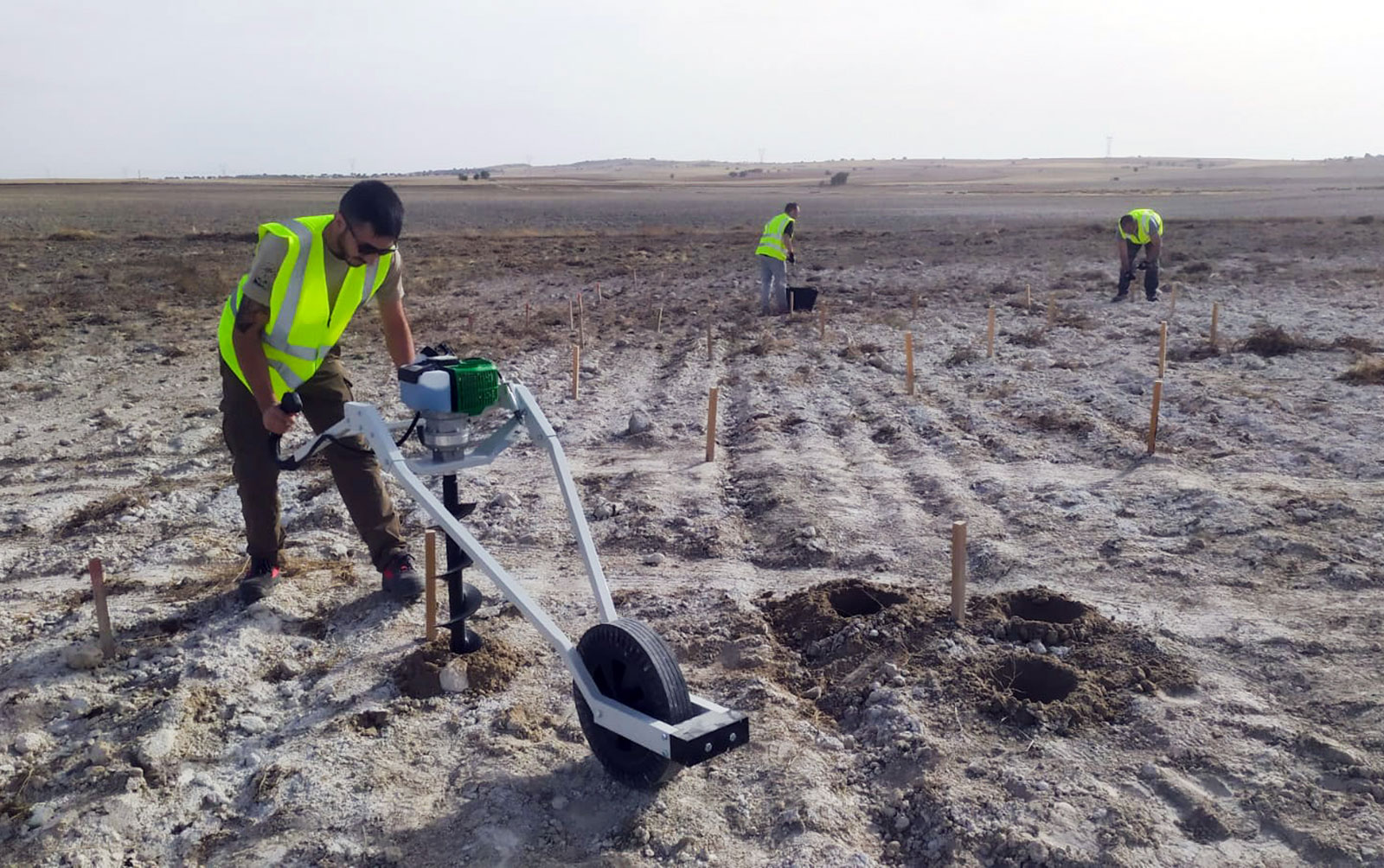Wetlands are one of the most important ecosystems in biodiversity conservation. They have a capacity as efficient, natural carbon sinks that clean the air, while providing habitats for a variety of plants and animal species.
Supported by Aramco, Fundación Global Nature (FGN) – a non-profit organization dedicated to nature conservation – acquired 81.36 ha of agricultural land in Spain to restore to wetlands.
A lot like spring cleaning
Previously, grazing, rain-fed crops, dumping and other pollution have reduced the land’s biodiversity. FGN is working hard to restore the former agricultural land to wetlands.
An astonishing 271 m3 of garbage and 2,500 m3 of rubble have been removed from the land, along with another 2,500 m3 of asbestos. Combined, that’s almost 60 trucks full of waste material.
By cleaning up and clearing these impacts, it will not only allow a greater space for biodiversity, but also eliminate direct threats, such as habitat fragmentation or pollution.
More than 110,000 plants have since been planted.
Carbon sinks
Restoring the wetlands has an added benefit of maximizing the carbon sequestration capacity of these wetlands and reduce greenhouse gas emissions – in particular the emissions of those gases that have a greater capacity to generate global warming, such as methane.
The actions undertaken by FGN are interlinked to create synergies, increase the efficiency of resource use and address climate challenges from different angles.




